China tries to calm Pacific fears after security snub
Pacific Islands leaders have rebuffed Beijing’s sweeping security and trade pact while calling on China to do more to address their ‘greatest threat’: climate change.
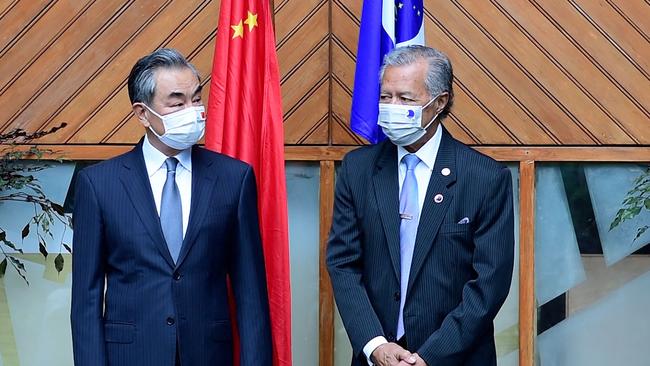
Pacific Islands leaders have rebuffed Beijing’s sweeping security and trade pact while calling on China – the world’s biggest polluter – to do more to address its “greatest threat”: climate change.
Xi Jinping’s top envoy Wang Yi said the region should not be “too nervous” about China’s intentions in the region in comments made after Beijing failed to get agreement for an ambitious security and trade proposal at a meeting of Pacific Island leaders in Fiji on Monday.
Mr Wang, China’s Foreign Minister, said concerns expressed by Canberra, Wellington and many of their Pacific Island partners were misplaced.
“Don’t be too anxious and don’t be too nervous,” Mr Wang said in brief remarks in Suva.
“The common development and prosperity of China and all the other developing countries would only mean great harmony, greater justice and greater progress of the whole world.”
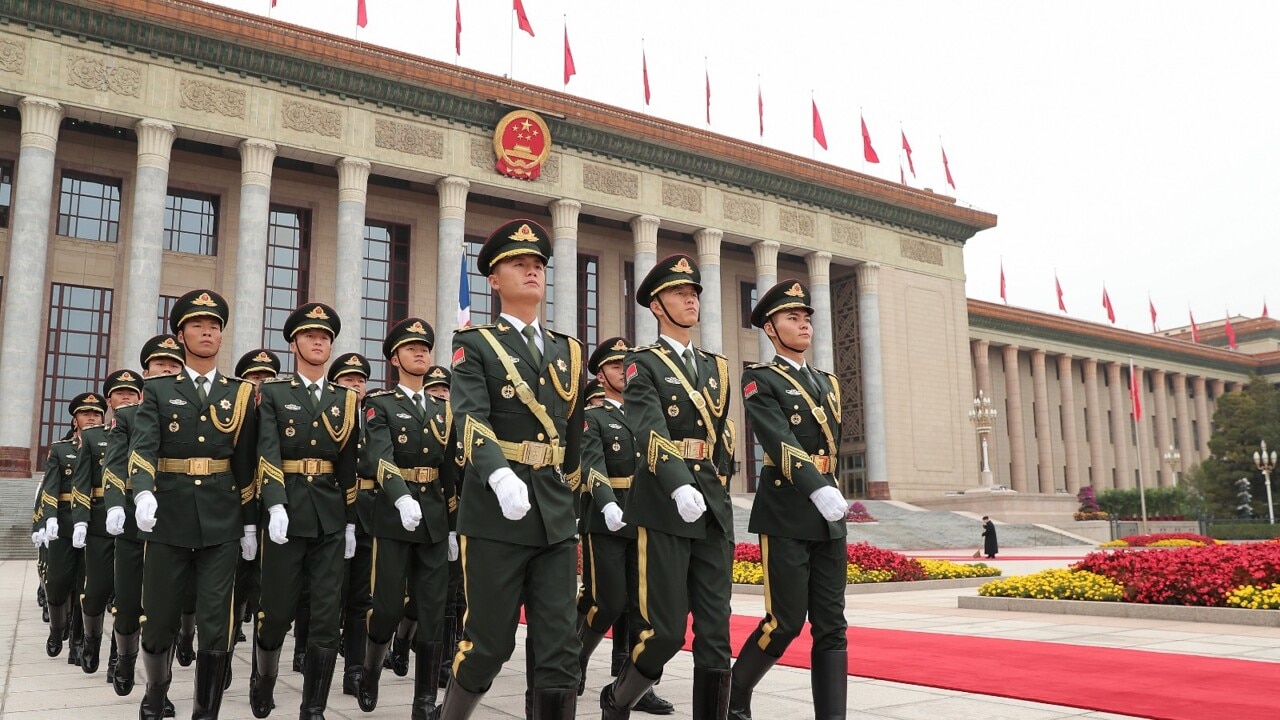
Instead of signing on to Beijing’s agreement, Pacific Island leaders called on China to address climate change. “Being a true partner and friend to the Pacific requires urgent and deep climate change action,” said Henry Puna, Secretary-general of the Pacific Islands Forum, on behalf of members.
“We call on China and our international partners to submit enhanced nationally determined contributions in line with the 1.5C pathway and net zero by 2050.”
Beijing has said it will not reach net zero until 2060 – a decade later than America, Japan, the European Union, South Korea, Australia and New Zealand.
Foreign Minister Penny Wong visited Suva last week after a draft of Beijing’s sweeping agreement was leaked and said the new Albanese government understood the acute concern about climate change in the Pacific.
In a statement after Monday’s meeting, Senator Wong said it was “up to countries in the region to make choices for their people”. “The security of the Pacific is the responsibility of the Pacific family, of which Australia is a part,” she said.
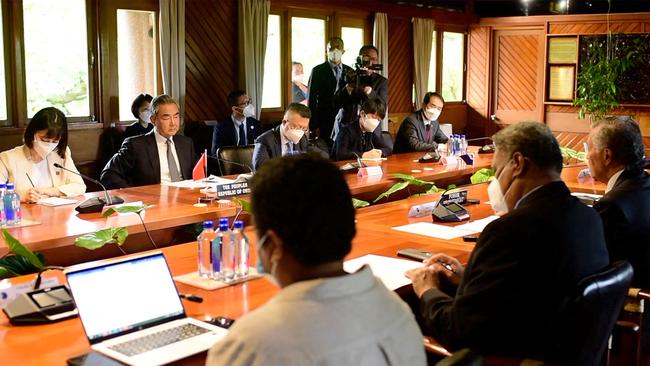
China had proposed to radically increase its involvement in the security, economy and politics of the region. Ahead of Mr Wang’s visit, China proposed a pact that would see Beijing train Pacific Island police, become involved in cybersecurity, expand political ties, conduct sensitive marine mapping and gain greater access to natural resources on land and in the water.
Beijing also offered millions of dollars in financial assistance and the prospect of a China-Pacific Islands free trade agreement.
Federated States of Micronesia president David Panuelo warned the proposed agreement was “disingenuous” and would “ensure Chinese influence in government” and “economic control” of key industries.
Fijian Prime Minister Frank Bainimarama said on Monday broad agreement would be needed before inking any “new regional agreements”. “As always, we put consensus first,” he said.
China’s Foreign Minister refused to take questions from the media, as has been the case at every stop on his unprecedented 10-day blitz in the Pacific. He is scheduled to be in Tonga on Tuesday.
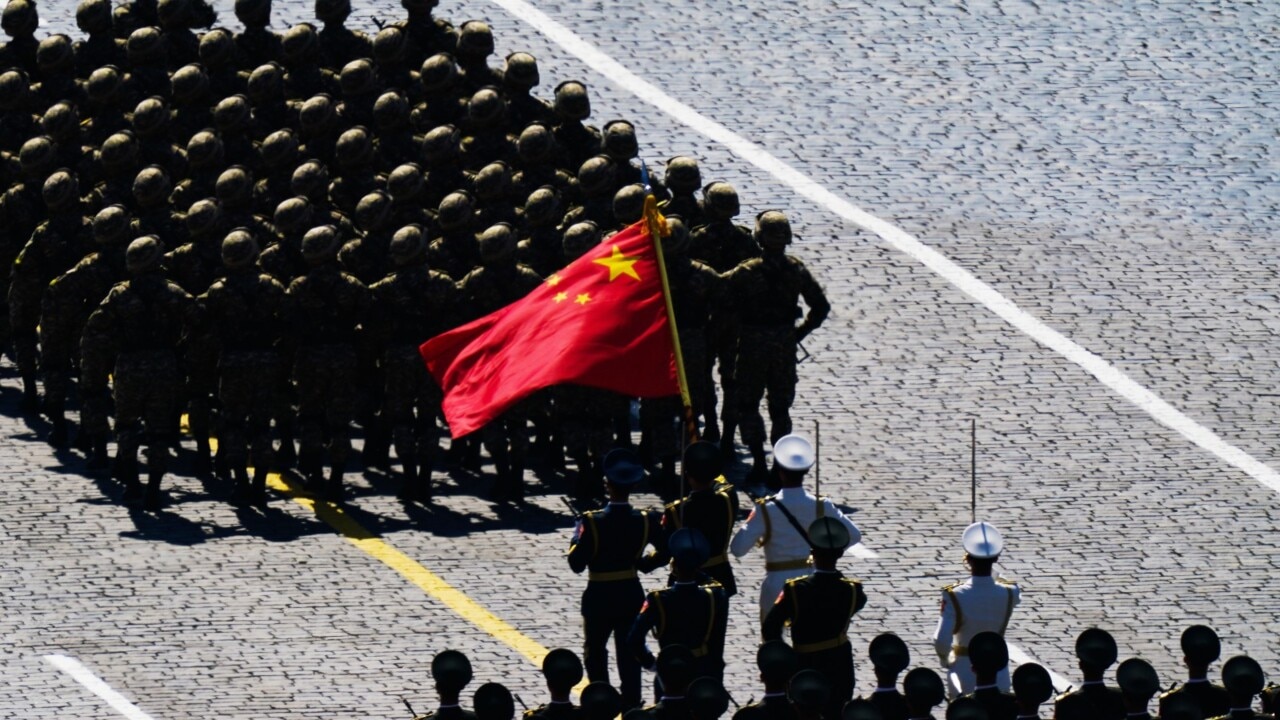
Speaking to the media after his boss had left, China’s Ambassador to Fiji, Qian Bo, confirmed Pacific Island countries had not reached agreement on the Chinese proposal.
“There has been general support from the 10 countries with which we have diplomatic relations, but of course there are some concerns on some specific issues,” he said.
Dr Anna Powles, a senior lecturer in international security at New Zealand’s Massey University, said the outcome was an example of “astute Pacific statecraft”.
The shuttle diplomacy by Australia’s new Foreign Minister has underlined continuing structural tensions in Canberra’s relationship with Beijing. China’s party state media last week accused Senator Wong of “double standards, arrogant colonialism and imperialism” for her concern about Beijing’s outreach in the region. Government-affiliated Chinese foreign policy experts have reacted angrily to the Australian government’s use of the phrase “Pacific family”, which they say is used to exclude China.


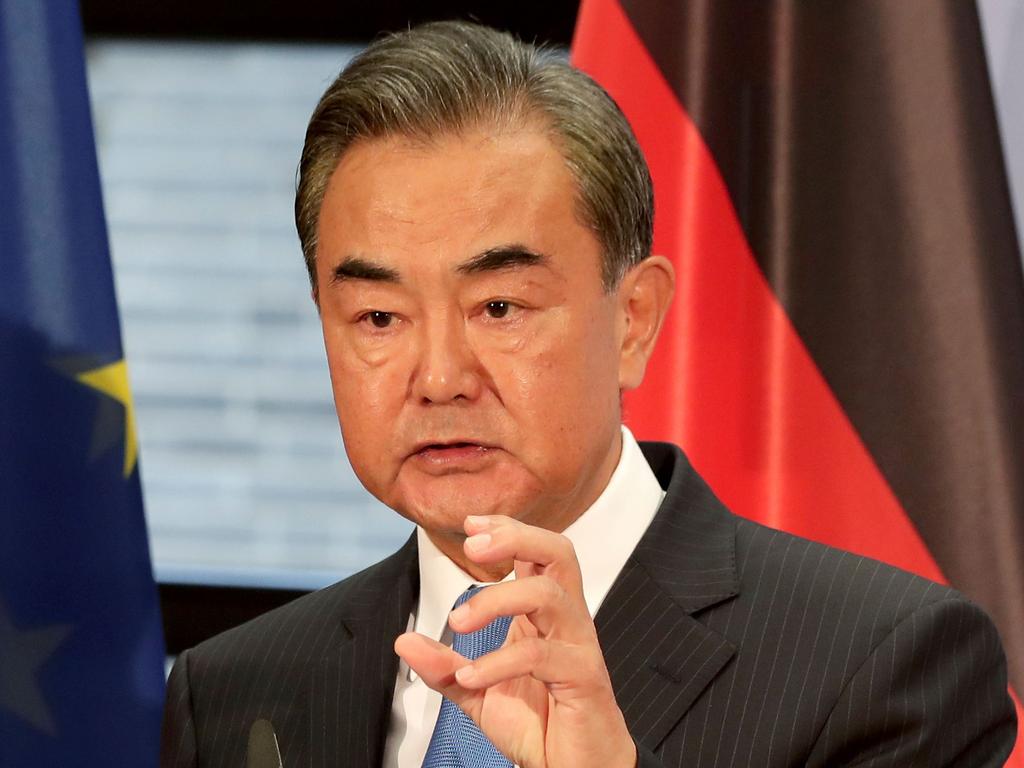





To join the conversation, please log in. Don't have an account? Register
Join the conversation, you are commenting as Logout